Hades
Hades
Infernally good
In Greek mythology, Hades is known as the older brother of the boss of the gods Zeus and ruler of the underworld. He is less well known as the father of a rebellious teenager who has nothing better to do than fight his way through the realm of the dead during his escape. This refers to Zagreus, a laid-back punch-up kid and protagonist of the rogue-like/rogue-lite game Hades. As an indie title released in 2018, the game from developer Supergiant Games, which had already conjured up presentable gems with titles such as Bastion, Transistor or Pyre quickly became a critics' favorite.
After I bought it for the Switch in 2021 and fell under its spell over the Christmas period, it has been living a shadowy existence in my game collection ever since. Now, a year later, I've taken it out again over the holidays and really played it through, so my review - which the world has been eagerly awaiting - has arrived with a significant delay. No, I can keep it quite short and agree with the general public: Hades is great. Why? Well, you can find out here.
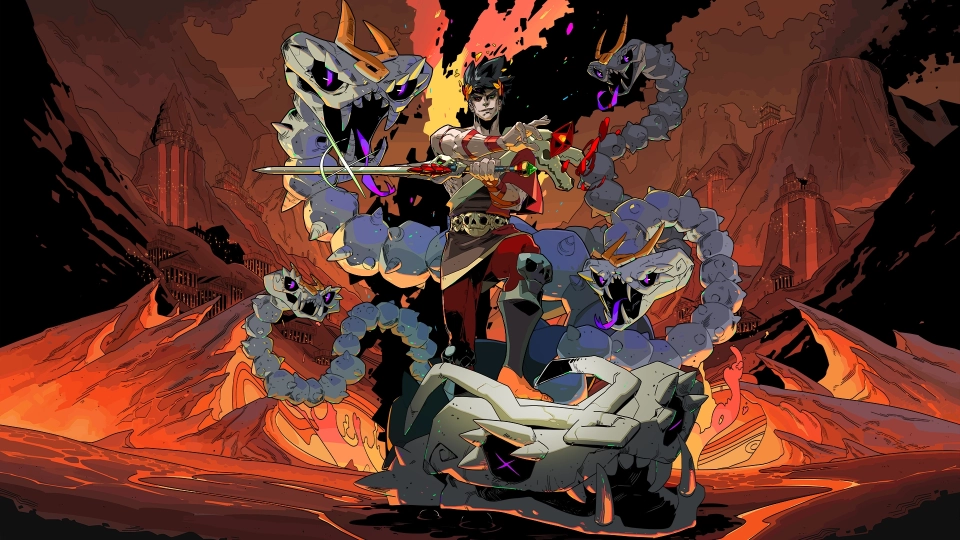
A feast for mythologists
I have already said everything about the background story of Hades at the beginning - and in fact nothing at all. It is based on Greek mythology and its pantheon. While the gods reign on Mount Olympus, guzzling nectar and ambrosia and directing the destinies of mortals, the god Hades takes care of what happens to mortals when they make their destinction part of the agenda. In keeping with ancient belief, their souls end up in the underworld - either in the heavenly Elysium or the fiery abyss of Tartarus, depending on their deeds during their lifetime.
Of course, Hades does not fulfill this duty alone, but has various assistants and servants. At his side, for example, is the three-headed (and very cute-looking) hellhound Cerberus, who guards the entrance to the underworld. Meanwhile, ferryman Charon carries the souls across the River Styx by boat and the Erinyes Alekto, Megaira and Tisiphone (or Furies, as they are called in Roman mythology) punish the particularly corrupt deceased. Incidentally, they are children of the night, which does not mean that they are particularly fond of drinking, but are descended from the actual night Nyx.
As you can see, anyone with a soft spot for Greek mythology and the world of the gods will get their money's worth here. And the fact that pretty much everything has its own personification means that we can look forward to meeting all kinds of familiar and unfamiliar characters, of which Sysiphos and Achilles are probably among the former, while Theseus and Asterius are probably less familiar. And we even meet the Grim Reaper, here in the form of Thanatos.
I could go on for hours about who all makes an appearance, which gods appear and how who relates to whom. The fact that Hades adapts Greek mythology for its story, which is probably one of the best documented ancient story collections, is ingenious and has already provided memorable and interesting moments in other brands such as God of War . Who were Orpheus and Eurydice again? What's the deal with Ambrosia? And why is Hades not on good terms with Brother Zeus?
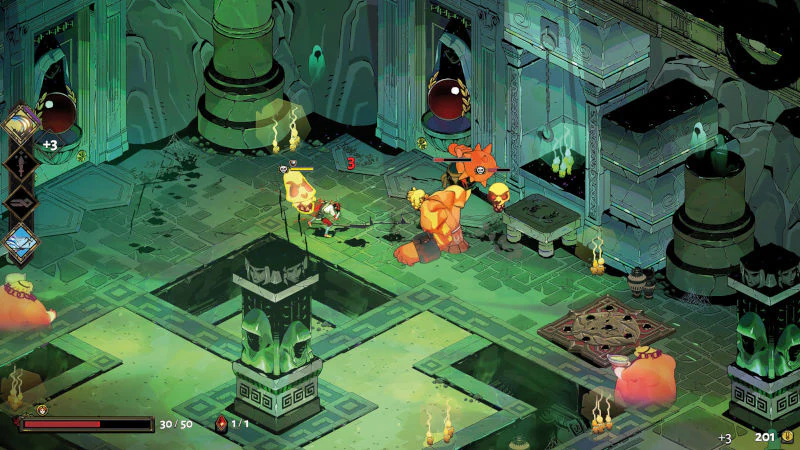
Purposeful universe
At the same time - and this is the beauty of it - you couldn't care less, because at its heart, Hades is a game. A rogue-like, with a clear objective and a simple gameplay loop: start, die, repeat. Get better, die less often, repeat. Get even better, don't die, repeat. As mentioned at the beginning, the story revolves around the adapted story of Zagreus, who, as the son of Hades, is tired of the same old underworld and wants to visit his relatives on Mount Olympus. To do so, he has to fight his way through the various levels of Hades - the underground that is, not his father. If he dies in the process, he ends up back in the house of Hades and has to start all over again.
It is this ingenious twist that turns a simple game principle into an integral story point. Unlike other rogue-likes, when we die we are not simply shown a death screen that sends us back to the last checkpoint or starting point, but we are literally thrown back in front of our friends and father, who comment on this failed escape attempt accordingly.
The fact that this repetition doesn't make us throw the pad in the corner in frustration is partly due to the story. Even though I have already described the superstructure in detail above, it is only the tip of the iceberg. After every restart and during every run, we receive new information from the numerous characters, meaning that dialogs are not just replayed over and over again. Instead, there are always interesting snippets of knowledge that allow us to piece together the cool story of Hades bit by bit.
After my first successful playthrough (about attempt no. 40), I had only experienced a fraction of the main storyline and had by no means unlocked all the bonuses and unlocks. Even now, after seeing the final credits - after 36 hours and the 80th attempt, mind you - I'm still getting new storylines. Anyone who plays more efficiently will certainly get to the point where you don't hear anything new faster, but for me the scope of the story was a welcome surprise.
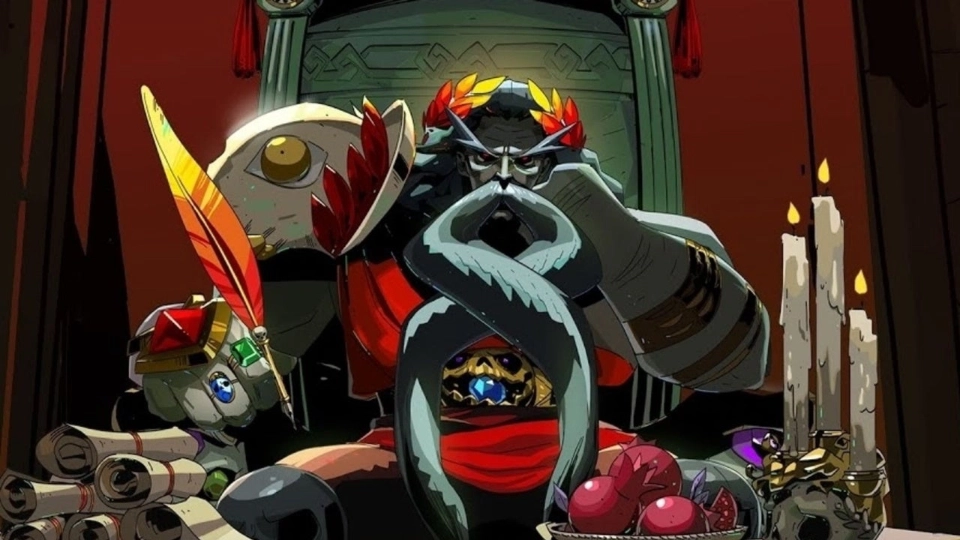
Motivating gameplay
The other big surprise and reason number two why the game is not annoying despite constantly starting over is the actual gameplay. Here, too, the basic principle is explained simply and hardly deviates from the genre standard. We start each run by selecting a weapon, choosing from a sword, spear, shield, bow, gauntlets or machine gun (yes, I know, I was surprised too).
Things really get going in the first region, Tartarus. Later we see the hellish lava lakes of Asphodel or the heavenly green Elysium. We travel through chambers in each region where enemies appear. Once these have been defeated, we receive a reward and can choose which chamber we take next. We can therefore decide, within certain limits, which specialization we take next. After around ten chambers, there is a boss fight. If we win, we move up to the next stage.
The combat system is kept quite simple. We can dash at the touch of a button and have a normal attack, a special and a throw. The sword special, for example, is a powerful AoE strike on the ground, while the bow special is a volley. The throw, meanwhile, fires a projectile, of which we only have a limited number and which gets stuck in the opponent. Simple.
The chamber rewards described above are active and passive combat skills (known as boons), each of which is assigned to a deity. While the goddess of wisdom Athena equips us with abilities to negate damage or reflect projectiles, party king Dionysus gives us area damage and dots. Other gods who come to our aid are (to name but a few) Zeus, father of the gods, Poseidon, god of the sea, Artemis, goddess of the hunt, Ares, god of war, Aphrodite, goddess of love, and Hermes, messenger of the gods. Not only can their boons be found in different rarity levels, they can also be combined with each other - for example, a combo of Athena and Dionysus ensures that enemy projectiles fly more slowly, while Zeus and Poseidon inflict additional lightning damage on enemies knocked back.
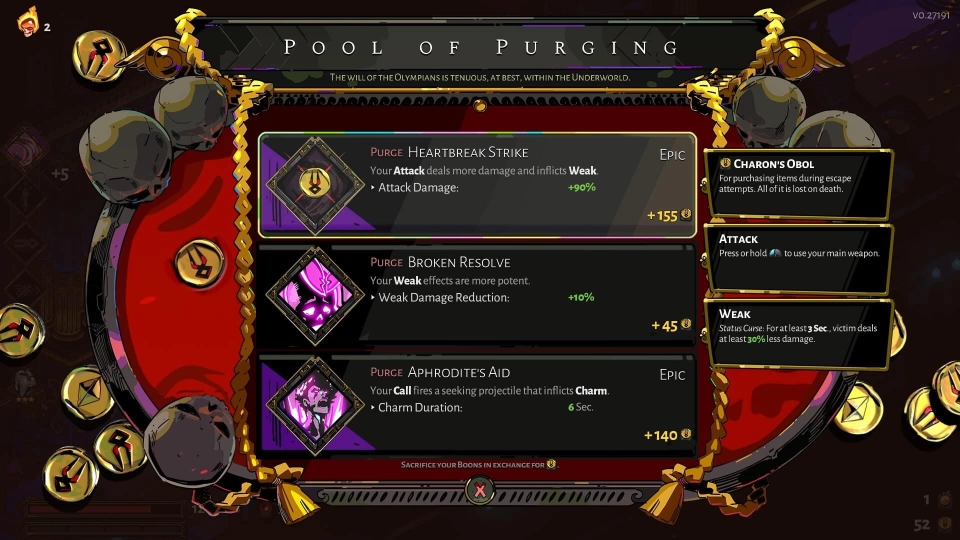
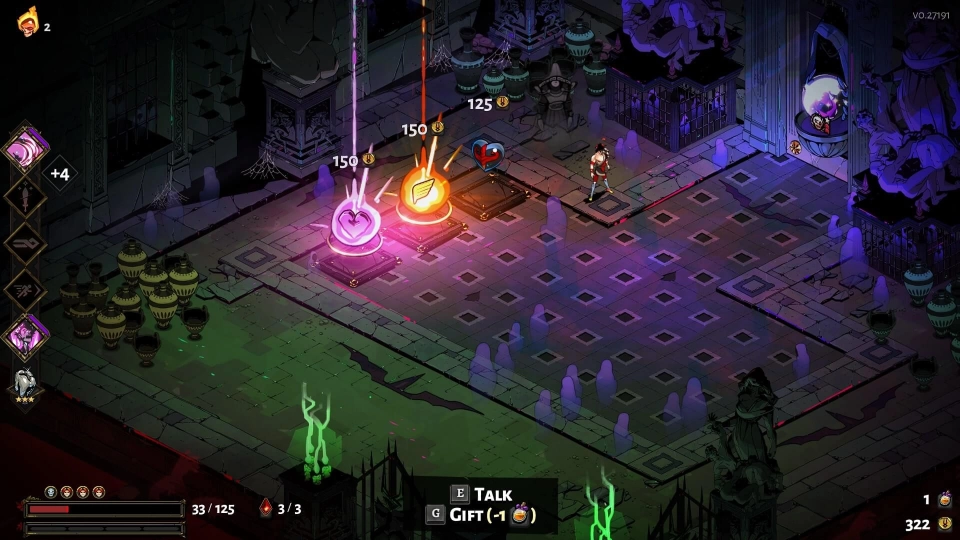
Instead of boons, we can also opt for gold, which we can exchange for further improvements during the run in Ferryman Charon's store. Other rewards can also be used to increase the effectiveness of our boons or permanently raise our health points, which is important because it is our most vital resource. If our life energy is at zero and we no longer have any resurrection up our sleeve, the run is over and all the bonuses we have collected are gone.
But that's where the rogue-lite element comes into play. Because unlike a Returnal we don't lose everything we've accumulated during our escape attempt. Along the way, we can also find various additional resources that allow us to buy permanent upgrades in the cozy Hades Hub: With Darkness Crystals, we can purchase passive bonuses such as extra damage when attacking enemies from behind or additional revives in the Mirror of Night. Meanwhile, skeleton keys are used to unlock other equipment and we can use jewels to purchase improvements for our home - which in turn bring story-related progress and gameplay benefits.
We also find diamonds for particularly valuable unlocks ... or to unlock cosmetic items such as a new background song. Finally, we can use the Titan's Blood to activate and improve the various aspects of our weapons. Not only are there six weapons that play very differently, but each of them has four versions with different effects.
While the Stygian Blade with the aspect of Zagreus provides bonus damage and movement speed, the aspect of Arthur gives us the ability to brand a spell circle on the ground, which slows down enemy projectiles and disables traps. This allows us to personalize our killing device before each run. But there are also two more rewards within the run that make our march through the underworld easier. There is the Hammer of Daedalus, which allows us to give our weapon special properties. For example, it allows the spear to be sent back and forth between seven enemies or eliminates the need to reload our rifle - handy!
The other and now really last rewards we can find are nectar and ambrosia. It doesn't help us personally, but we can give it as a gift to our conversation partners, which on the one hand unlocks further dialogs and later even romances, and on the other hand we receive talismans as thanks, one of which we can equip and which give bonuses such as more life energy or a higher probability of finding rarer boons. As these increase in level by mastering chambers, I only had them all at level 3 shortly before my last run to satisfy my inner stickler.
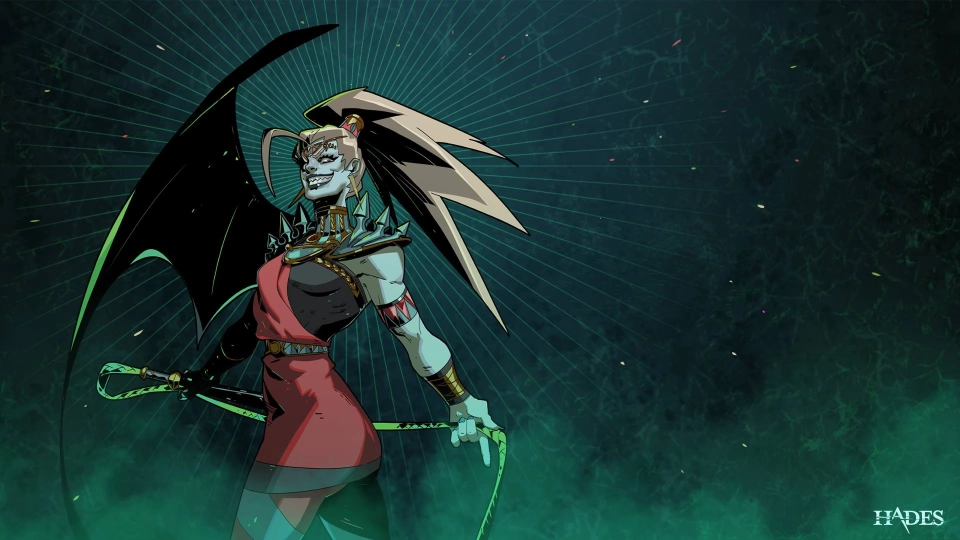
Addictive pull
In case it hasn't become clear by now: Hades is full of content and, above all, personalization options. The fact that I'm still thinking of things I haven't mentioned speaks volumes. Prophecies, Chaos Gate, the fire meter. I haven't even mentioned the graphics yet, although the art style is really coherent and even if the character portraits in the manga look seem out of place at first glance, they still fit in well with the overall work.
It should be clear that Hades has a lot to offer in terms of content despite its modest ambitions. It takes hours to see everything and even then you haven't unlocked everything. Every run is rewarding and the multitude of boons, upgrades and possible combinations means you rarely feel like you're doing the same thing. The weapons are varied, the dialog is well written and the story about Zagreus, who really just wants to get away from his father, is exceptionally well told for a game of this type.

Bottom line
I didn't know what to expect myself and as someone who has always avoided games like Dark Souls the thought of a constantly repeating game wasn't very appealing. But the one thing that keeps coming back with Hades is the thought: “This one more round. I can do it this time.” It's incredibly rewarding, especially at the beginning, when you've mastered a few more rooms, seen a new boss, got your head kicked in and then eventually made it. And later, when you can only smile tiredly and have completely adapted the pattern, leaving the battle unscathed with a new build. Hades is simply fun and I'm already looking forward to the recently announced sequel.
